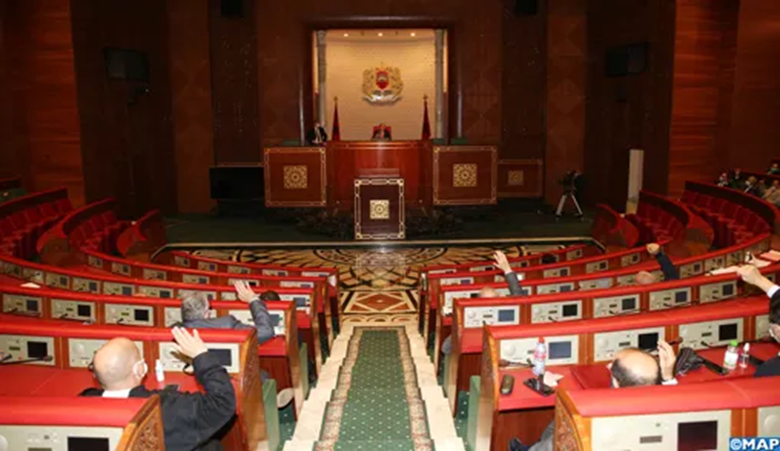The launch of the simultaneous translation of the works of oral questions sessions in the Council of Advisors into the Amazigh language

The Speaker of the House of Councilors, Al-Na’am Mayara, announced today, Friday, that the second session of the legislative year 2022-2023 (April session) will witness the launch of the simultaneous translation of the oral questions sessions of the Council into the Amazigh language.
In a speech during a plenary session devoted to the opening of the work of this parliamentary session, Mayara highlighted that this step comes from the Council's desire to communicate with all societal groups, in order to implement the provisions of the regulatory law related to the Amazigh language.
The President of the Council confirmed that the activation of the simultaneous translation service into the Amazigh language was the result of a close coordination effort with the Royal Institute of Amazigh Culture and with the delegated ministry in charge of digital transition and administration reform under the supervision of the Prime Minister.
And by adopting simultaneous translation into the Amazigh language, the House of Councilors follows the example of the House of Representatives, which has officially started working with it since the second session of the first legislative year of the eleventh legislative term.
It should be noted that the Moroccan parliament approved in 2019 the draft regulatory law related to defining the stages of activating the official character of the Amazigh language and the modalities for its integration in the field of education and in the priority areas of public life.
The draft regulatory law aims to activate the official character of the Amazigh language in various priority public areas, through provisions centered around the general principles framed for the activation of the official character of the Amazigh language, and its integration in the field of education, in the field of legislation and parliamentary work, in the field of information and communication, as well as in the various fields of creativity. Cultural and artistic, in administrations and other public facilities, public spaces and the field of litigation.
Source: websites

